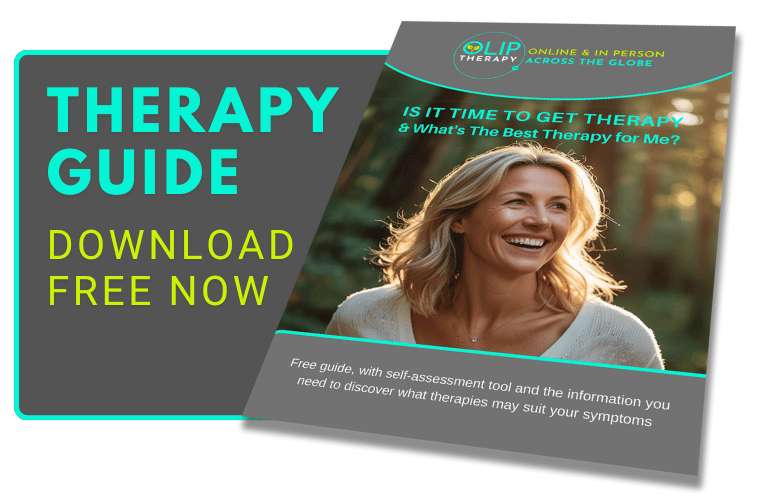
Compassionate Therapy Online & in Hampshire for Depression using Hypnotherapy, Counselling, CBT & EMDR in Hampshire
Effective Hypnotherapy, Counselling, CBT and EMDR for Depression and Low Mood in Hampshire
Depression is a debilitating illness which can not only affect the person suffering but those around them; family, friends, or work colleagues. Statistically, more women tend to suffer from depression than men and are often more willing to admit to their depression and therefore seek help. Often men do not recognise the symptoms of depression in themselves.
The good news is that symptoms can be effectively treated using Hypnosis, Hypnotherapy, EMDR, CBT & Counselling, In-Person or Online. The sufferer can also benefit from some Counselling to overcome the symptoms and to challenge their belief system. Hypnotherapy and hypnosis are extremely effective in helping people suffering from depression and depressive illness to improve how they feel and to lift themselves from the sense of hopelessness and sadness that depression can bring.
How can Hypnotherapy, Counselling & CBT help with the effects of Depression and Low Mood
Depression is a complex and deeply personal experience that can manifest in various forms, with symptoms differing widely from person to person. Some common signs include unexplained weight loss or gain, excessive sleep or insomnia, and persistent fatigue. Individuals may also experience difficulty concentrating, memory issues, or feel overwhelmed by pessimistic thoughts. Emotions such as guilt, worthlessness, shame, or low self-esteem can often accompany feelings of sadness, loneliness, or tension. In severe cases, restlessness, feelings of desperation, or even suicidal thoughts may arise.
If you're struggling with these feelings, know that support is available. At OLIP Therapy, we offer compassionate, professional help for depression both in-person at our Fareham, Southampton, Winchester, and Portsmouth centres, or through online sessions from the comfort of your home. Call us today on 0800 970 4776 to schedule a free initial consultation with one of our experienced therapists.
How can counselling and hypnotherapy help depression?
Hypnotherapy and counselling are both effective treatments for low mood and depression. They work in different ways, but they can both help you to improve your mood and your overall well-being.
Hypnotherapy is a state of deep relaxation and focus that can be used to change your thoughts, feelings, and behaviours. When you are hypnotised, you are more open to suggestions and are more likely to follow through on them. This can be helpful for people who are struggling with low mood and depression because it can help them to overcome any negative thoughts and beliefs that are holding them back.
Counselling is a type of therapy that involves talking to a therapist about your thoughts, feelings, and experiences. The therapist can help you to understand your depression and to develop coping mechanisms. Counselling can also help you to build a support network and to make changes in your life that can improve your mood. Visit or dedicated CBT page to learn how CBT helps with depression.
Both hypnotherapy and counselling can be effective treatments for low mood and depression. The best treatment for you will depend on your individual needs and preferences. If you are considering either of these treatments, it is important to talk to a qualified hypnotherapist or counsellor to see if it is right for you.
How can CBT (Cognitive Behavioural Therapy) Help With Depression?
Cognitive Behavioural Therapy (CBT) is a highly effective treatment for depression, focusing on changing negative thought patterns and behaviours that contribute to low mood. Here’s how it can help:
Identifying negative thoughts: CBT helps individuals recognise distorted thinking patterns that fuel depression, such as feelings of worthlessness or hopelessness.
Challenging harmful beliefs: Clients learn to question and reframe irrational beliefs, replacing them with more balanced and positive thoughts.
Behavioural activation: By encouraging engagement in positive activities, CBT helps break the cycle of withdrawal and inactivity, which often worsens depression.
Problem-solving skills: It equips individuals with strategies to manage stress and challenges, reducing feelings of helplessness and promoting empowerment.
Relapse prevention: CBT teaches techniques to cope with future setbacks, helping individuals maintain improvements and prevent depressive episodes from reoccurring.
Here are some of the ways that hypnotherapy and counselling can help with low mood and depression:
Hypnotherapy can help you to identify and challenge negative thoughts and beliefs. These thoughts and beliefs can contribute to low mood and depression.
Hypnotherapy can help you to develop coping mechanisms for dealing with stress and anxiety. These coping mechanisms can help you to manage your symptoms and improve your mood.
Hypnotherapy can help you to access your subconscious mind, where your thoughts and feelings are stored. This can help you to understand your depression and to make changes that can improve your mood.
Counselling can help you to understand your depression. The therapist can help you to identify the causes of your depression and to develop coping mechanisms.
Counselling can help you to build a support network. Talking to others about your depression can help you to feel less alone and to get the support you need.
Counselling can help you to make changes in your life that can improve your mood. This may include changes to your lifestyle, your relationships, or your work.
EMDR treatment for Depression and Low Mood
Eye Movement Desensitisation and Reprocessing (EMDR) therapy is an effective treatment for depression and low mood, particularly when these symptoms are linked to past traumatic experiences or negative life events. By engaging in guided eye movements while recalling distressing memories, EMDR helps individuals to process and reframe these memories, reducing their emotional impact. This process allows the brain to integrate these memories in a healthier way, often diminishing the intensity of negative thoughts and feelings associated with depression. Furthermore, EMDR can help uncover and address underlying issues contributing to low mood, promoting a more stable and positive mental state. The structured approach of EMDR provides a safe and supportive environment for individuals to explore and heal from their past, ultimately leading to improved mood and overall mental well-being.
To find out more about EMDR treatment, visit our dedicated EMDR page.
“I had suffered from depression on and off for 9 years. I had times when I experienced both inappropriate and dark thoughts alongside a general feeling of hitting rock bottom. I felt like I was going crazy and at times I had to fight thoughts of wanting to escape from it all…I liken it to a fairground ride that dipped and climbed but would never let me get off. I had just come to the end of my second course of counselling and I felt like I still only had medication to lean on. I had heard of hypnotherapy and had briefly thought of trying it, but was too sceptical to at first. Then one day I saw an advert in The Informer. It was for Hampshire Hypnotherapy and listed how hypnotherapy could help all sorts of conditions, one of them being depression!! I looked at their website and read about Sue and James, looked at their qualifications and read how hypnotherapy can help depression and all the debilitating symptoms that go alongside it. As the initial consultation was free of charge, I thought, why not, you never know unless you try, so I picked up the phone. I was seen fairly quickly and even as I sat discussing my depression with James, I still had feelings of scepticism, apprehension, nerves, but also, a tinge of hope. I knew it wouldn’t be easy - 9 years is a lot of bottled up emotion and I spent a lot of that time unsuccessfully trying to work out why this had happened to me and what it all meant. James reassured me that I could get better if I stuck with it and worked with him. I did just that and a lot of resistance, a range of emotions and a number of sessions later, I found myself sat in the chair after my penultimate session, heaving a tearful sigh of relief. There it was, the reason for all my emotions. The answer I’d been looking for, it all tied in, it all made sense and now I could deal with it logically and start getting better. You can too, you can’t put a price on getting your life back, it’s worth every penny, don’t give up - give it a go…”
CLIENT TESTIMONIAL

Counselling, CBT and Hypnotherapy in the comfort of your own home or in your workplace.

“I saw the world in black and white instead of the vibrant
colours and shades I knew existed.”
— Katie McGarry, Pushing the Limits














